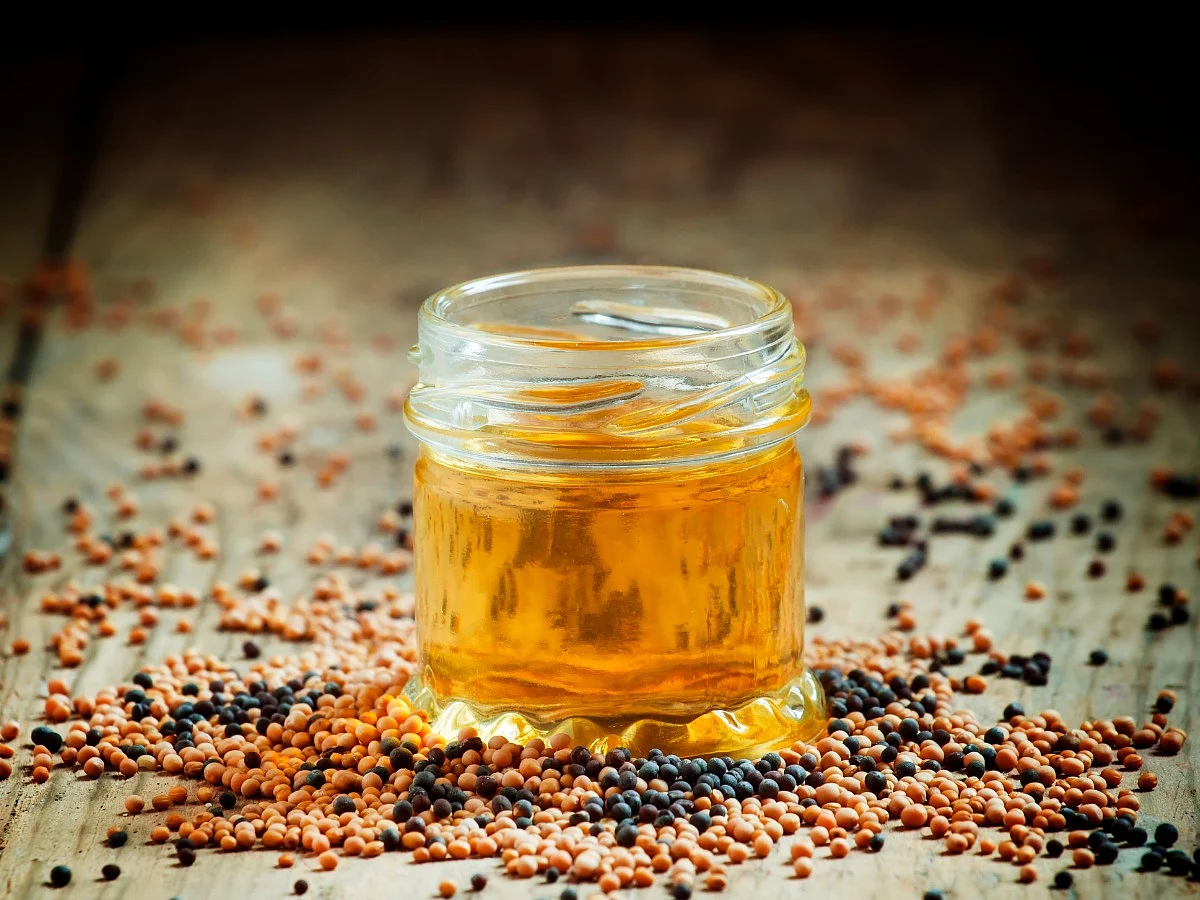7 Impressive Health Benefits Of Mustard Oil
Check the health benefits of mustard oil in detail below

advertisement
Mustard oil has a rich history and deep-rooted cultural significance. It has been an integral part of human civilization for centuries. Its usage in India can be traced right back to 3000 BCE when Indian farmers first started growing mustard. Ayurveda considers mustard oil as a potent remedy for various ailments, including digestive disorders, respiratory issues, joint pain, and skin conditions. The warming properties of mustard oil make it particularly valuable in promoting blood circulation and reducing inflammation.
Mustard oil also plays a distinctive role in traditional Indian cuisine. It has become an essential ingredient in regional dishes, with each region adding its unique touch to the culinary heritage. Mustard oil was highly valued for its flavor and medicinal properties. It is not only used in cooking but also as a massage oil and as a base for perfumes. Mustard oil is produced from the seeds of the mustard plant. It is known for its strong flavor, pungent aroma, and high smoke point. It is often used for sauteing and stir-frying vegetables in many parts of the world, including India, Bangladesh, and Pakistan.
1. Lowers Cardiovascular Disease Risk: Monounsaturated and polyunsaturated (MUFA and PUFA), omega-3, and omega-6 fatty acids are abundantly present in mustard oil. Therefore, consuming these healthier fats in mustard oil in moderation lowers the risk of having ischemic heart disease. Mustard is believed to have hypocholesterolemia (lower cholesterol) and hypolipidemic (lower lipid) effects. The oil lowers the levels of bad cholesterol (low-density lipoprotein) and raises the levels of good cholesterol (high-density lipoprotein) in the body. Further decreasing the cardiovascular disease risk.
2. Possesses Antimicrobial, Antifungal, and Anti-inflammatory Effects: Mustard oil-based microemulsions are effective antibacterial agents against E coli. Mustard oil contains glucosinolate, which inhibits the development of unwanted bacteria and other microorganisms. Mustard oil has strong antifungal qualities as well and hence helps treat fungal infections and skin rashes. Mustard oil turned out to be the most effective of the various oils in the prevention of rye bread spoilage by fungi mainly due to the presence of a substance called allyl isothiocyanate in mustard oil.
3. Beneficial For Cold and Cough- Steam therapy is the way to use mustard oil for cold and cough relief. Inhale the vapor from a kettle of boiling water after adding some caraway seeds and a drop of mustard oil. This helps remove any phlegm buildup in the respiratory tract.
4. Lowers Cancer Risk- Mustard oil has anticancer effects since it contains a lot of linolenic acid in it. It is believed that this acid helps lessen the severity of colon cancer. According to research, mustard oil is more effective at preventing colon cancer than fish oil.
5. Promotes Weight Loss- The B-complex vitamins found in mustard oil are niacin and riboflavin. These vitamins in oil speed up body metabolism and aid in weight loss. In addition, the oil also includes diacylglycerol, which aids in weight loss.
6. Enhances the Efficiency of the Organs- Massaging the body using mustard oil helps revitalize the body and enhances organ performance. It improves blood flow to every area of the body. In many countries, giving neonates a massage with mustard oil is extremely common. The benefits of utilizing mustard oil for a massage include increased physical stamina and better general health.
7. Effective Insect Repellent- According to research carried out in Assam the effectiveness of mustard and coconut oils as insect repellents against Aedes albopictus mosquitoes was tested. Compared to coconut oil, mustard oil turned out to be more effective in protecting against Aedes for a longer period.